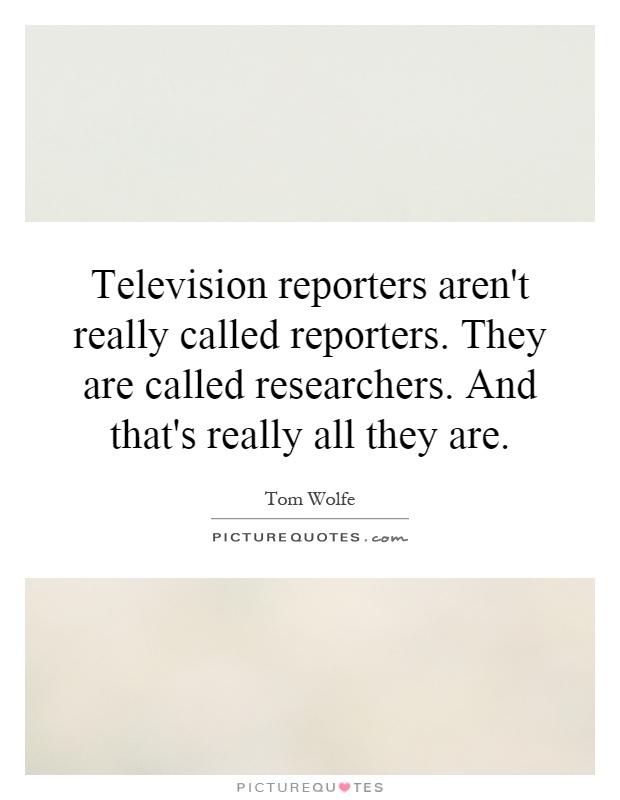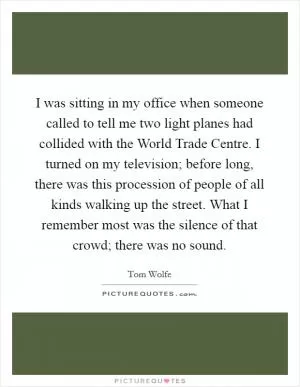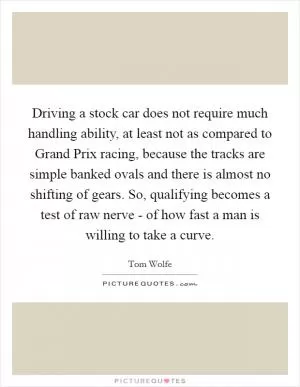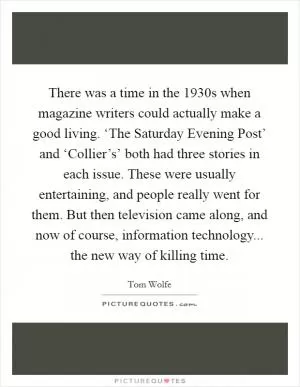Television reporters aren't really called reporters. They are called researchers. And that's really all they are

Television reporters aren't really called reporters. They are called researchers. And that's really all they are
Tom Wolfe, the renowned American author and journalist, was known for his sharp wit and keen observations about society. In his book "The Electric Kool-Aid Acid Test," Wolfe delved into the world of television reporters and their role in shaping public perception. He famously stated that television reporters aren't really called reporters, but rather researchers, and that's really all they are.Wolfe's assertion that television reporters are primarily researchers speaks to the idea that their role is more about gathering information and presenting it in a digestible format for the audience. In today's fast-paced media landscape, reporters are often tasked with quickly gathering facts and presenting them in a way that captures viewers' attention. This can sometimes lead to a focus on sensationalism and soundbites rather than in-depth analysis and investigative journalism.
Television reporters are often under pressure to deliver breaking news and updates in real-time, which can limit their ability to thoroughly research and verify information. This can result in inaccuracies and misinformation being spread to the public. In this sense, television reporters may be seen more as conduits for information rather than true journalists who delve deep into a story and uncover the truth.
However, it is important to note that not all television reporters fit this description. There are many journalists who work tirelessly to uncover important stories and hold those in power accountable. These reporters go beyond just researching and presenting information, they investigate, analyze, and provide context to help the public understand complex issues.












 Friendship Quotes
Friendship Quotes Love Quotes
Love Quotes Life Quotes
Life Quotes Funny Quotes
Funny Quotes Motivational Quotes
Motivational Quotes Inspirational Quotes
Inspirational Quotes